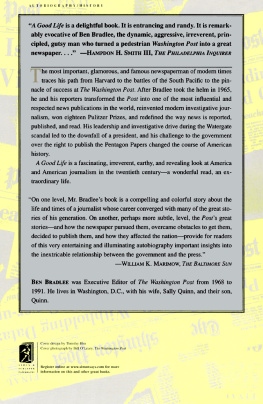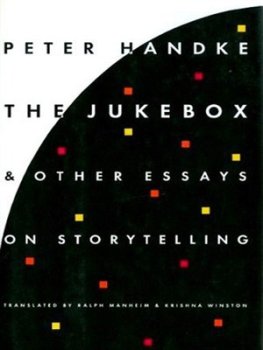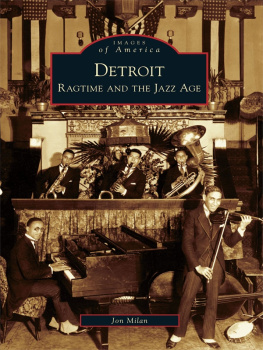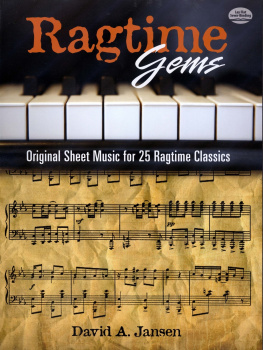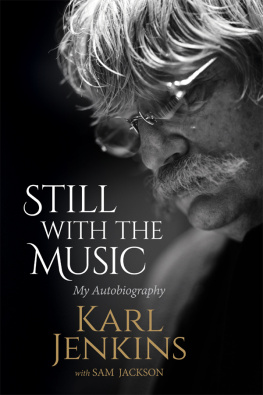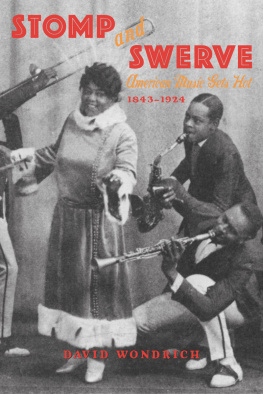A ttention, Walmart shoppers: Come to the paint counter and get your groove on as we present the sweet sounds of Scott Bradlee and his Intergalactic Purveyors of Funk.
Long before the sold-out tour dates around the world, before the hundreds of millions of YouTube views, and before all my wildest dreams actually came true, this was how I announced my first public appearance as a bandleader: over the loudspeaker at the Walmart at which I worked. It wasnt exactly well-received, either; instead, it got me fired.
The Walmart in Clinton, New Jersey, was a logical place of employment for me in high school, mainly because it was the only place that was interested in hiring a very unskilled seventeen-year-old kid. It also happened to be the workplace of one of my best high school friends and fellow neer-do-wells, Cody (who, notoriously, would be fired not long after I started for making price tags that read MY HAIRY ASS$1.00 and slapping them on items around the store). In the brief, blissful time that our shifts overlapped, before Cody met his fate, we spent most of our on-the-job hours goofing off and talking music. On one particular afternoon, I had the idea to take things to the next level and actually perform music instead of merely sitting around talking about it.
I wont claim to have thought, at the time, that bringing in a live band to perform at the paint counter would result in anything other than my termination as a Walmart employee, but I do know this: Even then, the idea of putting music where it didnt belong fascinated me enough to throw caution and my Walmart career to the wind, just to see what would happen. The musicians who accompanied meCody on bass, Steve Ujfalussy on sax, and my friend Josh on conga drumsknew the drill; after all, Id talked them into performing for confused customers at a gas station convenience store the previous week.
Upon arriving at the megastore that day, I channeled my inner James Bond and hijacked a large dolly, so as to wheel in my 1978 Fender Rhodes electric piano and a battery-powered amp in the smoothest, least obtrusive, least suspicion-stirring way possible. Realistic? Not at all. But its the strategy Id landed on, and I was committed to seeing it through. I pushed the array of instruments down the frozen food aisle, conscious, of course, of the weird glances I was receiving from customers. But there was no backing out now. This was my musical debut for the entire world, and the number one rule in showbiz is that the show must go on . With steely resolve, I executed a wide left turn into my usual station at the hardware department. With the help of my friends, I quickly set up the instruments around the paint counter before taking my place at the piano. Then, over the public-address system, I made the announcement that begins this tale.
The set began with a favorite of mine: Sly and the Family Stones If You Want Me to Stay. If nothing else, Walmarts customers seemed mildly entertained by this departure from the paint counters usual programming, which consisted of my mixing paint for them and occasionally supergluing objects to the countertop out of boredom. A few even nodded their heads to the beat. It wasnt enough people to qualify as a crowd, exactly, but it was enough for me. I imagined myself onstage somewhere grand, with throngs of screaming fans cheering my every note.
A minute or so into the song, as I was passionately digging into the keys and wiping beads of sweat from my brow, I looked up to take in the sweep of my adoring fans only to find, instead, a formation of managers descending on us in a classic pincer movement. I snapped back to reality and stopped playing. A wave of discomfort washed over me as they arrived. My boss spoke.
Scott, what are you doing?
I felt it should have been obvious, but I figured Id give him the benefit of the doubt and reply; he was my superior, after all.
Playing a concert with my Intergalactic Purveyors of Funk, sir.
The requisite blank stare.
You think this is a joke?
There was no discussion about the artistic merit of what I was doing. I was fired on the spot, made to turn over my badge, and ordered to leave the store immediately. I complied, though not before belting out one last battle cry of rebellion with the band: a performance of Bob Marleys Redemption Song, in protest, right outside the stores entrance, until the police were called. So ended my first showand my last day of working for corporate America.
I wasnt troubled by this in the least. As I sat in my parents driveway, trying to figure out how to explain my latest predicament to them in a way that might provoke some sympathy, I found my thoughts drifting to visions of someday getting the opportunity to tell this very story in front of a live audience. Thatd show those managers the mistake theyd made, I thought. And in my rebellious teenage mind, anything seemed possible.
24 minutes. 32 minutes. 28 minutes. 16 minutes. 29 minutes.
I was in the back seat of a silver Toyota Camry driven by my mother, a spiral-bound notebook splayed open in front of me. In it, I was furiously writing down my practice times for the previous week, meticulously alternating between using pen and pencil for entries. I wanted to create the illusion that I filled in my practice log daily and accurately, not arbitrarily and all at once on the ride over to my piano teachers house. Truthfully, the amount of time I spent practicing piano each day of the previous week was quite easy to rememberbecause I never practiced the piano.
That I never practiced the piano was no secret to my teacher; I was a terrible liar, especially for an eleven-year-old who probably had a lot of things to lie about and, as such, had just as many opportunities to hone his lying skills. Every week, she would put the same Clementi sonatina in front of me on her cherry upright piano in her immaculately maintained parlor room, and I would do my best to pretend that I had spent hours practicing each section on my parents spinet piano. Every week, I would express faux frustration at my predicament.
I practiced this part so much last week. I dont know why I cant get it to sound right! Maybe Im just not able to learn piano.
My teacher was too gentle to call me out on my lies, but on this particular day, as she demonstrated how the section Id been assigned for the past three weeks was supposed to sound, she looked more dispassionate than usual. Thats because shed already decided that this was the last lesson I would be taking from her. Suffice it to say, it was a decision that improved both our lives.
In retrospect, Im able to clearly see that formal lessons were never going to work for mefor two reasons. First, I loathed being forced to do anything I didnt want to, and the lessons always felt like something I was enduring to appease my parents. And second, as I realized much later on, what appealed to me so much about music, in general, was its potential for rebellion the fact that you could elicit a range of emotions, from bemusement to shock, in an audience, merely by playing something unexpected. In the drudgery of the Czerny and Hanon exercises that I was learning, there didnt seem to be any space for that sort of magic.
That I allowed my parents to waste their money on lessons I wasnt committed to is something that I still feel pangs of remorse about all these years later. They were too generous and sweet to deserve that, and although we were by no means poor, we also werent wealthy. Born to a blue-collar family and raised in Brooklyn, my mother, Sunday, was a Spanish teacher at Amityville High School. She played violin and sang in college, and to this day she still picks out songs on the guitar that she learned to play during a year abroad in Madrid. My father, Richard, a computer programmer, was raised by a single mother in Providence, Rhode Island, and grew up to be the honest, loyal father that he never had. My parents had been married five years when I was born, but they were still finding their footing in their careers. Through sacrifice and a few years of diligent saving, they were able to scrape together enough for a down payment on a plot of land in an undeveloped neighborhood in central New Jersey, away from the hustle and bustle of New York City. They wasted no time getting down to building the small, contemporary-style home theyd envisioned for their family, and in many of my photographic appearances as a five-year-old, Im wearing OshKosh overalls and a painters cap, attempting to help apply a layer of primer on the interior. I wasnt much help, but I


